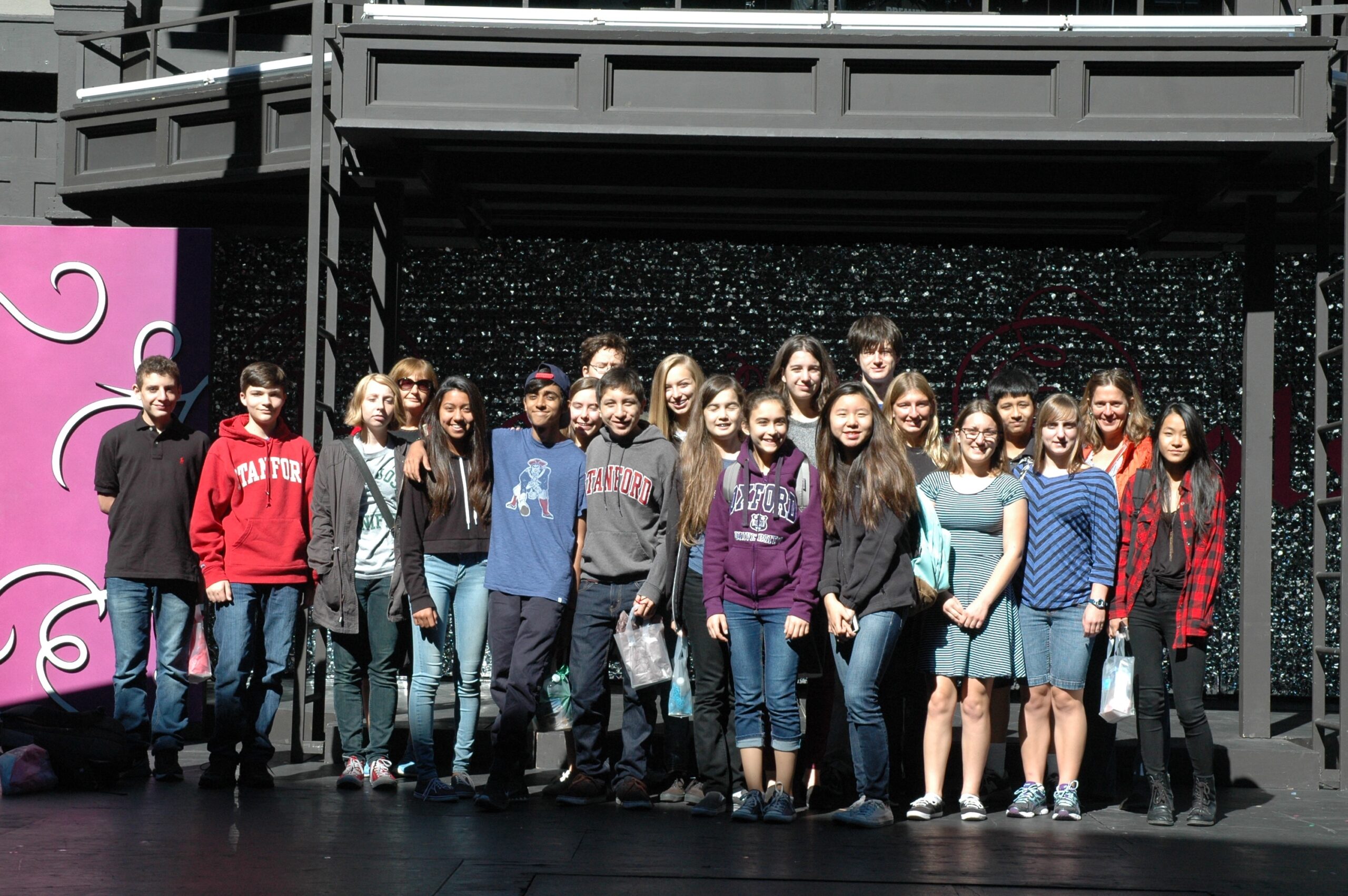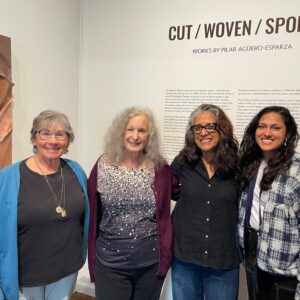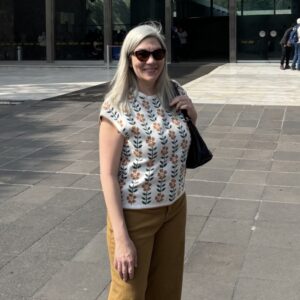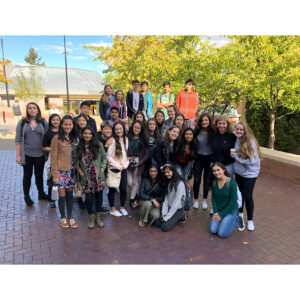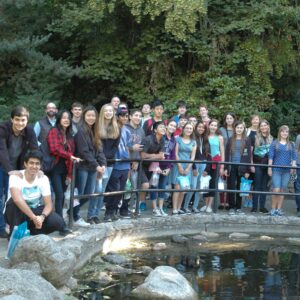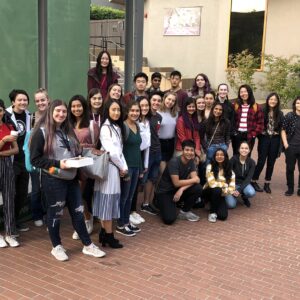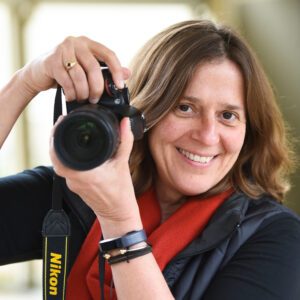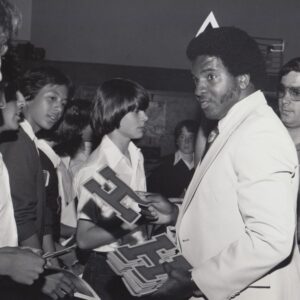This article originally appeared in the winter 2015 Harker Quarterly. Access the full issue, with live links, at Harker’s issuu.com page: http://issuu.com/theharkerschool/docs/harker_quarterly_winter_2015.
In fall 2009, upper school English teacher Pauline Paskali rented a van with the intention of driving to the Oregon Shakespeare Festival in Ashland with four of her students. Paskali reached out to fellow English faculty member Jason Berry to see if he would go along. “’Of course!’ he said,” recalled Paskali.
Berry ended up driving all the way to Ashland and back. The students came back raving about their time at OSF, Paskali said. The following year, more than 20 students signed up. The most recent trip included 27, which is right around where Paskali would like to keep it.
“At the time, I was teaching Shakespeare,” she said, explaining the impetus for the trip. “And of course every time you teach Shakespeare, having the kids read and act out the lines makes it come alive for them, and helps them to understand what’s going on.”
Paskali thought it would be good for the students to see what Shakespeare’s words would be like when interpreted by professional actors in a professional setting: “I don’t know how much exposure some of our kids have to plays, so I think it gives them an opportunity to connect.”
The Oregon Shakespeare Festival was founded in 1935, but its beginnings go back to the Chautauqua adult education movement of the late 19th and early 20th centuries. The first Chautauqua building in Ashland went up in 1893, and was later renovated to seat 1,500. It thrived for the next several years, attracting performers and speakers such as composer John Philip Sousa and politician William Jennings Bryan, according to the OSF website.
The Chautauqua building was replaced by a domed structure in 1917. It was torn down in 1933, about a decade after the Chautauqua movement fell into decline. Noting the similarities between the Chautauqua’s remaining walls and those of Elizabethan theaters, local teacher Angus L. Bowmer proposed holding a three-day festival at the site of the old Chautauqua building to coincide with Ashland’s Fourth of July festivities. The Oregon Shakespearean Festival gave its first show, a production of “Twelfth Night,” on July 2, 1935.
OSF now puts on 11 plays in its three theaters during its season, which runs from February to November. Although the works of Shakespeare are its namesake, the company has expanded to include works of other classic and contemporary playwrights. This most recent season featured the play “Sweat,” written by Lynn Nottage, whom OSF commissioned as part of its American Revolutions series of plays about decisive moments in American history.
“I can easily say that ‘Sweat’ is the best play I have ever seen,” senior Alex Henshall gushed. “Its profoundness and intelligent handling of its subject matter and the questions it raises affected me deeply.”
Kayvon Solaimanpour, grade 11, had a similar reaction. He described “Sweat” as “an amazing play about the struggles in an industrial town, jumping back and forth between 2000 and 2008. It left me thinking for a couple hours after having seen the play.”
In addition to contemporary plays, the students also enjoyed seeing Shakespeare come to life on stage.
“Before this journey, I knew little about Shakespeare and wasn’t super interested in his works,” Henshall said. “I had very seldom seen or read any of his works, mostly because I noticed a very real language barrier that hampered my enjoyment of his plays.”
Henshall, who has gone on the weekend trip for four years, saw rsthand how much can change when Shakespeare’s words move from the page to the stage.
“The performances and the ways in which the directors envision their productions of Shakespeare’s timeless plays always entertain me,” Henshall said. “I love asking myself, ‘I wonder what setting the director of ‘Antony and Cleopatra’ will use? What will the costumes be like? Will there be a modern interpretation or a classical flair?’”
“The ways in which the plays are presented affects the way in which you engage with them,” Paskali said.
In Paskali’s experience, the sojourn has a lasting effect on attending students. She recalled a moment when, days after the 2009 trip, Melinda Wang ’10 peeked into Paskali’s classroom and exclaimed, “I’m thinking in Shakespeare!”
After their first visit to OSF, students and alumni often return on their own. “People love story, they love performance,” said Paskali, “and they love that it comes alive to them and it speaks to them in a way that maybe a play on the page doesn’t.”
“Because I have an interest in literature, this trip [has allowed] me to experience it with a new perspective and has definitely made me more interested in reading, writing and enjoying literature,” said sophomore Stephanie Swanson, who this year went on her second Harker OSF trip.
An avid reader of Shakespeare, Swanson said she also enjoyed the opportunity to see OSF’s other offerings. “Seeing all of the plays, from ‘Antony and Cleopatra’ to ‘Guys and Dolls,’ getting to meet and understand some of the actors through discussions and workshops, and bonding with all of your fellow Shakespeare aficionados are just a few of the incredible opportunities offered on this trip, despite its short length,” she said.
Oregon Shakespeare Festival also offers an impressive array of educational programs, many of them run by OSF actors, who teach students critical elements of drama through hands-on activities. In an exercise meant to illustrate a concept from the archetypal narrative of “the hero’s journey,” students covered their eyes and allowed their fellow students to be their eyes and ears while walking around the room.
On a previous visit, students acted out a line from the “The Tempest” using movements and sounds, “trying to understand the play through those lenses,” Paskali recalled.
Incidentally, the journey to OSF can also make for a fun road trip. “The bus rides are as fun as you make it. I sat with a bunch of my friends and we played games, told stories and even tried to do a little homework,” said Solaimanpour. “To me, this goes to show that even if you are doing something you love, it is always better to do that same thing with your friends.”
